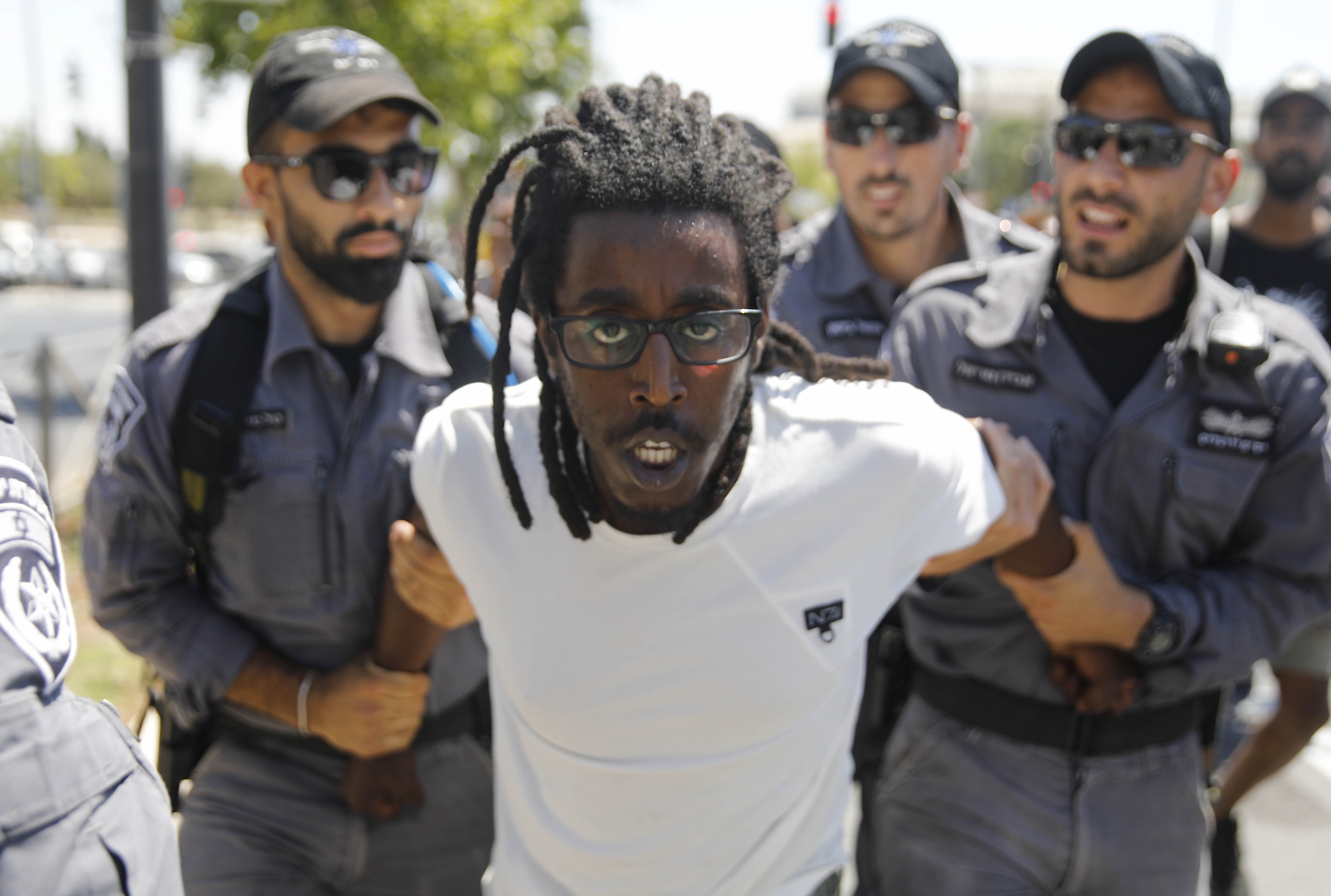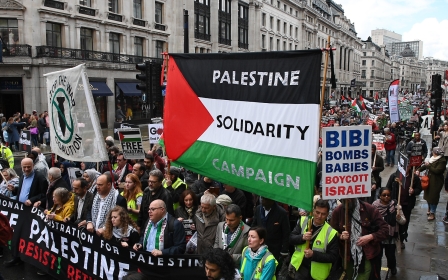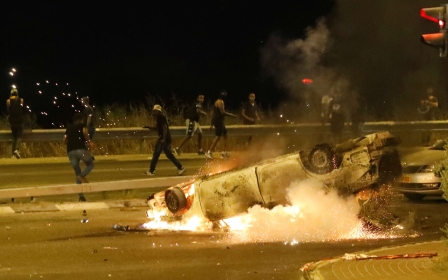Ethiopian Israeli protests erupt again as suspect in teen shooting released

A new wave of protests among Ethiopian Jews erupted across Israel on Monday after a policeman who shot dead one of their community earlier this month was released from house arrest.
On 1 July, 18-year-old Soloman Teka was gunned down by an off-duty policeman in the city of Haifa, sparking a series of demonstrations that rocked the country.
Tempers appeared to have cooled after days of protests that were violently confronted by the authorities, forcing Prime Minister Benjamin Netanyahu to acknowledge and address the needs of the Ethiopian Jewish community.
However, on Monday a judge ordered the release of the officer, who has not been named, prompting hundreds to head to the streets in Jerusalem.
Seven people were arrested near Israel’s parliament, the Knesset, and are being held in Moria police station in the city’s centre.
New MEE newsletter: Jerusalem Dispatch
Sign up to get the latest insights and analysis on Israel-Palestine, alongside Turkey Unpacked and other MEE newsletters
Thousands more are expected to protest in and around Tel Aviv later on Monday, threatening to choke some of the country’s busiest roads and intersections.
Shula Mola, the chair of the Israel Association for Ethiopian Jews, told Middle East Eye she was in shock at the decision.
“There is no limit to the rudeness and lack of justice. It’s like we’re living on a different planet, as if laws, values and norms do not apply when it comes to Ethiopians,” she said.
“We cannot accept that someone can murder a person and be released by a judge. I cannot understand how this happened.”
Though he has been released, the police officer faces restrictions as he likely faces charges of reckless homicide – a categorisation that only became applicable five days ago in a justice reform and carries a maximum sentence of 12 years.
The officer contends that he shot Teka in self-defence while breaking up a street fight.
'It's like we’re living on a different planet, as if laws, values and norms do not apply when it comes to Ethiopians'
- Shula Mola, chair of the Israel Association for Ethiopian Jews
It is not yet clear if the suspect will be able to return to work, however he is barred from visiting the scene of the alleged crime and restricted from entering the Zevulun police station for 45 days.
The officer cannot return home and is being housed in safe, secret locations under police protection.
Ethiopian Jews have long complained of discrimination in Israel and say they are the victims of police brutality.
Sholameet Brahno, a lawyer and activist, told MEE he was outraged the officer has not spent a single night in a detention cell, as is normal in such circumstances.
Brahno noted that the officer was accompanied by his wife, who is also a witness in the case. “This, of course, muddies the investigation,” he said.
The activist said public distrust would now be at an all-time low.
“Instead of re-acquiring public confidence after half a state has been set on fire, they have freed the policeman,” he said.
The ruling “undermines trust in the police, trust in the PIID [Police Internal Investigations Unit], trust in the judicial system, and hints at where the story might develop,” he added.
“This is a very acute crisis.”
Middle East Eye delivers independent and unrivalled coverage and analysis of the Middle East, North Africa and beyond. To learn more about republishing this content and the associated fees, please fill out this form. More about MEE can be found here.




